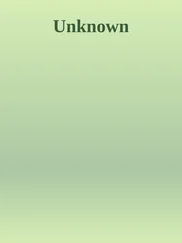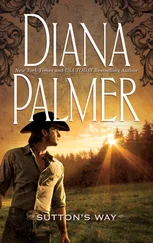February 20
As my loyal readers know, nearly every day I run from the West Village to the river. Today’s run stood out from the others. Yes, that’s right, I got a new record from my eccentric uncle Nik. (For those of you late to the lowercase a party, you can read what I have posted about him here and here and here.) As I ran through the sliver of the west side park, always in sight of the Hudson, my ipod was loaded with my uncle’s new release, The Ontology of Worth, Volume 2. Those of you who frequent this space know how much I dig my intense uncle’s complicated self-published recording career. And you might also know his experimental stuff is not my favorite, especially his epic (ahem) experimental stuff. I prefer the pop stuff, the side projects, the low-fi simple songs. He can make perfect three-minute pop songs that will hypnotize you and haunt your every waking second. But the epic dirge pretensions of the multivolume work? No thanks. The avant-garde (I guess, but avant-garde circa 1975) noise/song cycles, the hermetic codes and references, the doom and the darkness that seem to deepen with each volume. Not my style, way too ponderous and concentrated for me. It’s at best annoying and at worst unsettling (maybe that’s the other way around). But, as I am your ever-open-minded lowercase a, I touched play. No music on this at first, just spoken words. “Soundings,” he calls it. I gave up guessing (but so much about the fun of music is that kind of guessing at what is coming and then being surprised or disappointed, being satisfied or being bored). I let the “Soundings” wash over me as I hit the rhythm of the run. I went with it. And wow, I must tell you, it blew me away. It was the perfect mix of the moment and the sound. And it also gave me an idea. Stay tuned and I’ll tell you what it is!
a.
I hadn’t had a listen yet, and I felt a pang of regret reading Ada’s “review.” Often Nik would review his own records for the Chronicles. He had several rock-journalist pseudonyms that he used when he wrote these reviews. Many, of course, were hyperbolic raves. Some were carefully considered and annotated essays that were in fact fascinating exegeses by the artist. And quite a few were scathing, harsh hatchet jobs or faint, lethal dismissals. Nik would sometimes send me copies of the reviews with the CD. I would make a point of not reading them until after I had a clear, unframed listen of my own. In this case, there was a “clipping” included, but it was an interview from Nik’s fantasy fanzine, Butter Your Toast :
BUTTER YOUR TOAST
Our Girl Anna Conda Tracks Down the Elusive Nik Worth Western Lights, Topanga Canyon, California Today, fans, is the day. Volume 2 of The Ontology of Worth has hit the stores. Looks like we are getting very near the end! Don’t miss it, or the free promo poster, and don’t forget the limited-edition covers all work together to make three different unique images (back copies are still available for the previous eighteen volumes, but hurry — they are limited and are already commanding high prices on eBay). We have been informed that once these discs are gone, no more will be made!
Nik Worth, aka Nikki Trust, né Nikolas Kranis, pop wunderkind turned underground wizard, has agreed to talk to us about his latest release:
Butter Your Toast: What made you decide not to use music on some of these tracks?
Nik Worth: Why not? I like to experiment. Call it a Futurist sound experiment, a dada poemlet.
BYT: Yeah, okay, but when are we going to get some pop songs?
Nik Worth: The Pause Collective is not a pop label.
BYT: How do you expect your fans to listen to this?
Nik Worth: I expect complete and total attention for all of my work. I want my fans to drop whatever else is going on and devote themselves. I want them to listen, with rapt and dire attention, to the prior eighteen volumes, in order, and then I want them on their knees, eyes closed, with the whole fifty-six minutes of the CD played at top volume. I want them to repeat that undistracted deep listening until they see the patterns, themes, and ideas that link and resonate through the entire nineteen volumes. I want them to understand any failings they may perceive in the work as part of its terrible beauty, and I want them to embrace the mystery and beauty of the project as a whole. Then I want them to hold those thoughts and feelings and wait breathlessly for the final chapter— Volume 1. Soon to come. That’s all I expect.
BYT: And when will you drop the final chapter, Volume 1 ?
Nik Worth: Sooner than you think. This year. I’m almost done.
BYT: And?
Nik Worth: It cannot, I repeat, cannot, be topped. This truly will be the last record.
I know. There was no mistaking the finality of his statements. But to be fair, I had heard things along these lines for years.
I do all my listening in my car. It is the only thing that makes my commute bearable. Each day I get up earlier to “beat” traffic. I had begun to leave my house while it was still dark. I watched the light gradually press behind the mountains; the glow of the headlights of the few other cars made me feel as if I were part of a secret, determined club of commuters. I inserted Nik’s CD and tapped up the volume button to a nearly uncomfortably loud level. I wanted to feel the music as well as hear it. In the anticipatory silent seconds before any sound could be heard, I felt a little lift of desire and possibility, something that felt marginally like wanting a cigarette or a morning coffee or, more aptly perhaps, starting the last chapter of a book you have been reading for a long time. I had a second to wonder, breathlessly, what world would come. This little edge of wondering right before was an active part of the pleasure: the matrix of expectation based on the past, the thrill of the unknown that isn’t fully unknown because the work is from such a familiar, intimate source. I knew, in a larger sense, what was likely to come. I, after all, had heard so many of Nik’s CDs — each and every one of his CDs, which was no small amount — all of his CDs, as far as I could tell. And listened closely, listened with devotion and attention. It should be somewhat predictable by now, shouldn’t it?
Nik’s voice came on. He spoke instead of singing, and there wasn’t any music.
A spoken-word intro? Really? But then I stopped. I listened. I knew how to listen to him. He had earned that unique faith that comes from knowing the work and the person making the work. He wasn’t reciting words, but rather rhythmic sounds. Wordish sounds. They were nonsense but compelling somehow. He chopped a sound and let it hang there, unrushed. I felt a movement forward, a lean in me toward a future second. I picked up the CD case. My left hand gripped the top of the steering wheel. I glanced at the thickening traffic on southbound 170, made a minor calculation that I made so often: a person in control of a speeding car (seventy miles per at the moment) could momentarily not look at the road she traveled but could sneak a look at a piece of writing, or at the radio controls or a telephone keypad, and the risk that something would happen that would require her eyes and attention — well, it was worth taking, as it was unlikely to have any consequences given the brevity of these glances. The CD said: “Track One: Soundings (32:10) .”
Well, okay, Nik had his pretensions, and I was also glad to know that it just didn’t matter. Just as it didn’t matter if he was repetitive or derivative. It also didn’t matter if he was stuck in some dead-ended wrong-turn rut where experimental music met art met folk met acoustic rock and roll. (Did that rut even exist? Maybe briefly back in 1979 or so — I was, of course, making all of this up, guessing, more or less. I had no idea of the precursors and probably neither did he, but even if he did, it would not stop him. Nothing would ever stop him.) Nik was liberated from any dialogue with the past work of others and certainly with the current work of others. His work was his own exclusive interest now and had been for years. I knew his solipsism had become his work, in a sense, that this was complicated to think about, but at some point there is the unyielding, the concentration, and the accumulation that becomes a body of work. Whatever the nature of that work, it is hard to argue against. Maybe. I’m not sure about it. In this case, Nik’s case, it meant he could do whatever he wanted. No one — not me, certainly — could deny that this was a form of purity.
Читать дальше












